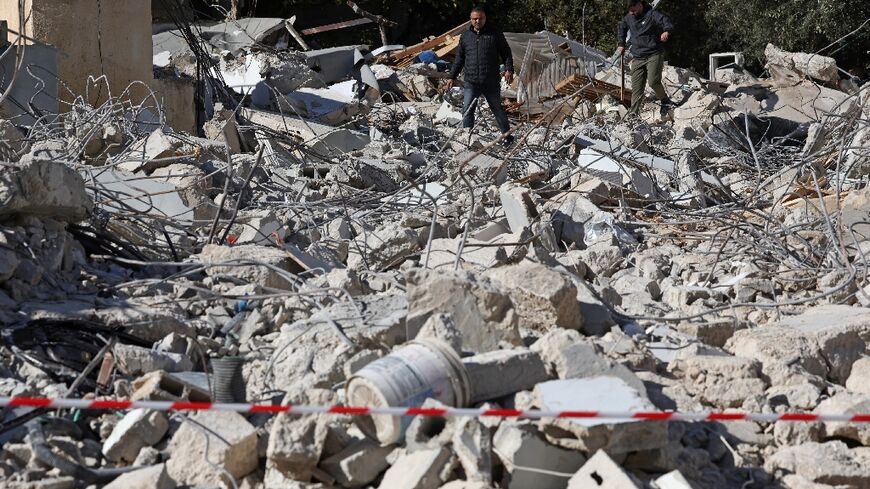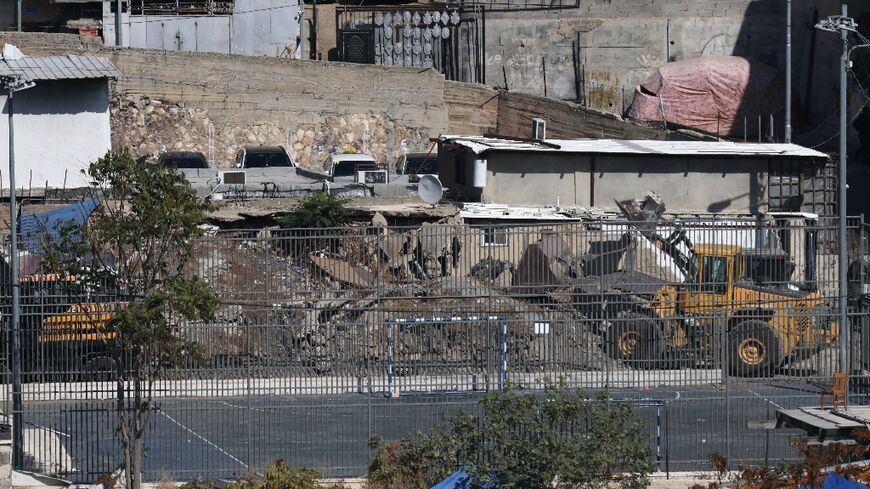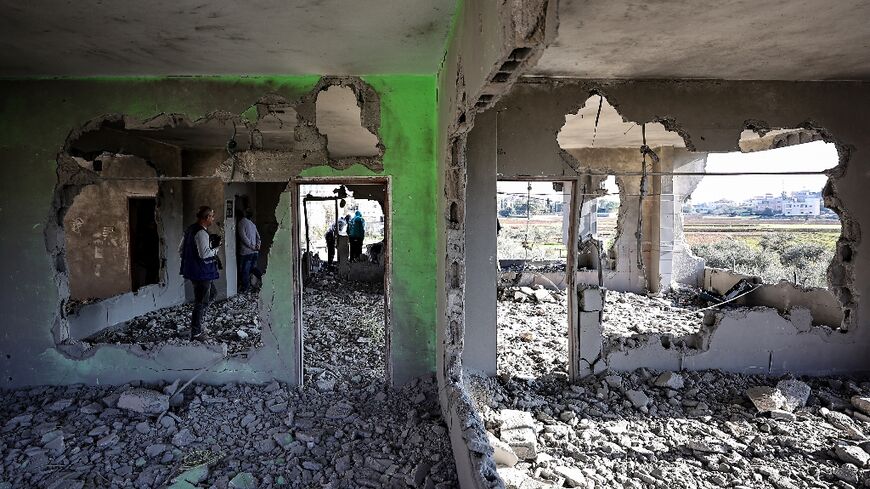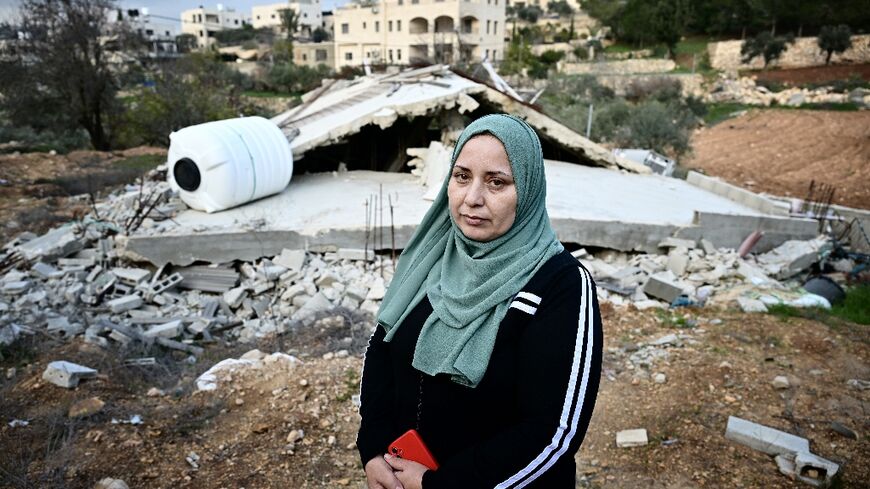US rebukes Israel for demolishing activist home in Jerusalem
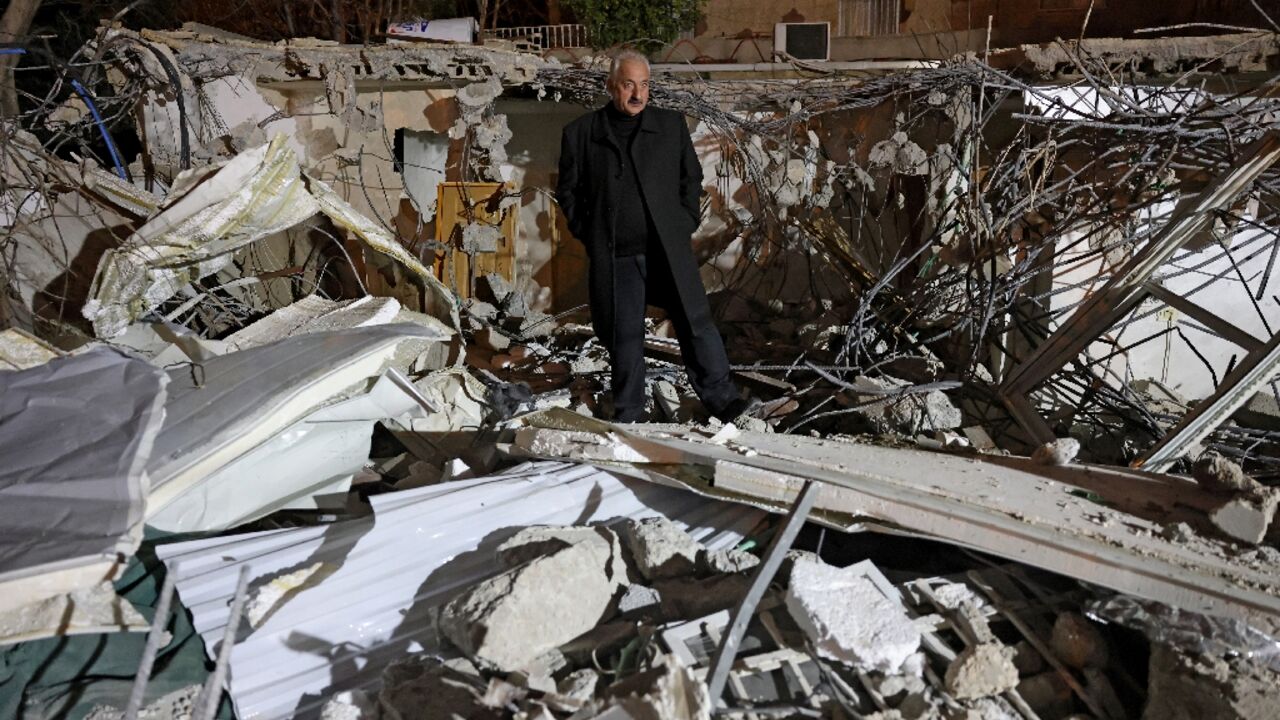
The United States on Wednesday rebuked Israel for demolishing the home of a Palestinian activist in east Jerusalem, saying its ally was damaging its own standing.
The unusually forceful US condemnation of Israeli actions came hours after Fakhri Abu Diab, a campaigner against demolitions, said that dozens of Israeli personnel tore down his home of 38 years near the Old City.
"Ten of us were living here -- my wife, my three children and five members of the extended family. Now we're literally on the street, asking neighbors and passers-by to help us," Abu Diab told AFP in Jerusalem.
"We have become homeless," he said.
In Washington, State Department spokesman Matthew Miller said the United States condemned the demolition and would encourage Israel not to target other homes.
"He has been an outspoken community leader including against demolition and now his family has been displaced," Miller said of Abu Diab.
"These acts obstruct efforts to advance a durable and lasting peace and security that would benefit not just Palestinians, but Israelis," he told reporters.
"They damage Israel's standing in the world, and they make it ultimately more difficult for us to accomplish all of the things we are trying to accomplish that would ultimately be in the interests of the Israeli people," he said.
He noted that part of the building dates before 1967, when Israel captured east Jerusalem -- home of sites holy to Jews, Muslims and Christians -- in the Six-Day War. Israel later annexed east Jerusalem, a move not recognized by most of the international community.
Abu Diab responded to the US condemnation: "I thank them, but they should have put pressure beforehand on the Israelis to prevent the demolition of my house."
"They demolished the memory, the past and the future. They did not demolish just the ceiling or the house," he said, standing near the rubble of his former home.
"It was an act of revenge, part of the campaign by the Israelis against the Palestinians of Jerusalem that has only grown since October 7," he said.
On October 7, Hamas militants infiltrated Israel from the besieged Gaza Strip and attacked several communities in southern Israel that resulted in the deaths of around 1,160 people, mostly civilians, according to an AFP tally based on Israeli figures.
Militants also took around 250 people hostage, in the deadliest-ever attack in the country.
Around 130 of the hostages are believed to remain in Gaza, including 29 who are believed to be dead.
Israel has responded with a relentless military campaign in the Gaza Strip that has killed more than 28,500 people, mostly women, children and adolescents, according to the health ministry in the Hamas-ruled territory.
The United States, while backing Israel's right to respond, has voiced alarm over civilian casualties in Gaza Strip and criticised Israeli settlers' violence against Palestinians in the West Bank.
Campaigners charge that Israel turns to demolishing homes as collective punishment or to enforce legal rulings favouring Israelis.


